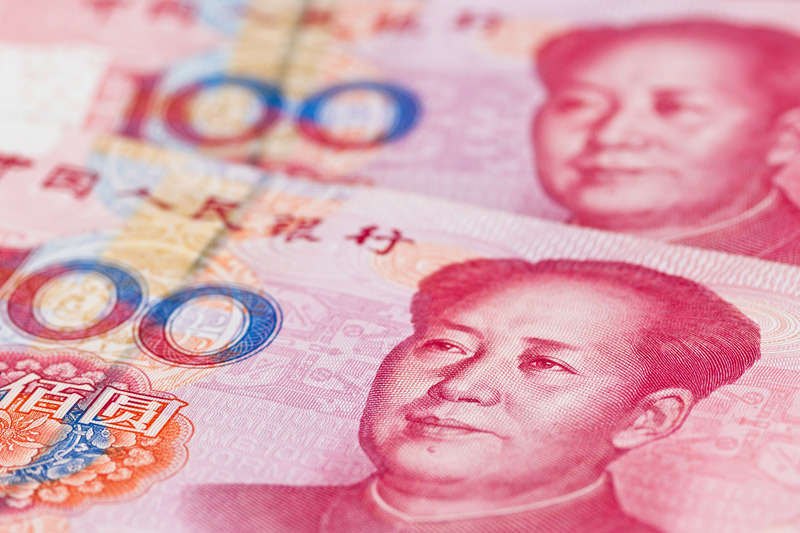Chinese Yuan Hits Near 2-Yr low, Asia FX hit by Fed Jitters
2022.08.22 05:51

Chinese Yuan Hits Near 2-Yr low, Asia FX hit by Fed Jitters
The Chinese yuan sank to a near two-year low on Monday after the People’s Bank cut lending rates for the second time in two weeks, while most other Asian currencies fell amid growing uncertainty over the Federal Reserve’s plans for monetary policy.
The yuan fell 0.1% to 6.8273 to the dollar, its weakest level since September 2020, after the People’s Bank of China (PBoC) lowered its benchmark rates for a second consecutive week. The move comes as the bank struggles to stimulate the economy amid headwinds from COVID lockdowns, a debt-saddled property market and a brewing energy crisis.
The Chinese government recently vowed to support the economy with more debt issuances and by increasing infrastructure spending. But Beijing is yet to budge on its strict zero-COVID policy, which is at the heart of China’s economic woes this year.
The PBoC’s recent rate cutting spree has also raised concerns over the state of the Chinese economy, which barely managed to avoid contraction in the second quarter.
Sentiment to broader Asian currency markets weakened on Monday as investors grew more uncertain over the Fed’s plans for raising interest rates for the rest of the year.
The Japanese yen fell 0.4% to the dollar, while the Singapore dollar and the South Korean won lost about 0.2% each. Malaysia’s ringgit was the worst performer in Southeast Asia, slumping 0.3% to a five-year low in tandem with weaker oil prices.
The dollar index and dollar index futures rose mildly, but held around five-week highs hit last week.
Traders are now awaiting Fed Chair Jerome Powell’s address to the Jackson Hole Symposium later this week for more cues on monetary policy.
While data earlier this month showed U.S. inflation levels eased slightly, a slew of hawkish comments from Fed officials suggested the bank intended to stick to its pace of sharp rate hikes.
Traders are now almost evenly split over expectations for a 50 or 75 basis point hike by the Fed in September.
Bucking the trend, the New Zealand dollar rose 0.3% after the central bank said it will likely raise rates at a sharp pace this year to tame inflation. The bank had last week hiked rates by 50 basis points.







